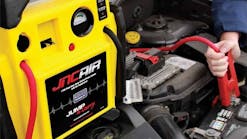When it comes to enforcing the rights of the automotive aftermarket (including collision/mechanical repair shops, as well as mobile technicians and such), the first establishment that should come to mind for most is the National Automotive Service Task Force (or NASTF).
The NASTF was established years ago and has been the key to survival for most of us in the aftermarket. Specifically establishing the right to adequate service information, training, and tooling access, previously only privy to the OE service establishments, like dealerships.
Although obtaining this service information and tooling is easy in many cases, the ability to do so in some is darn near impossible, or with much friction. The NASTF Automotive Service Information Standards Agreement (ASIS) is the agreement by which automakers and NASTF resolve identified gaps in service information, tool information, training, and vehicle security information.
Regarding any issue obtaining the necessary tools or information to complete a job safely and efficiently (properly), the proper procedure is to report any inadequacies to the NASTF Information Review Committee. This involves NASTF completing an official Service Information Request (SIR) to the offending manufacturer.
For instance, Mercedes-Benz USA (MB USA) has been a frequent offender of the established agreement, and in the recent past has been simply paying fines related to any misconduct; avoiding having to provide the information they don’t wish to share. Until recently, MB USA rarely responded in any way to SIRs forwarded to them for review. Over 90 requests have remained open for over a year, been shared with MB USA at least once, and have been “followed up” when the requester reports that there has been no resolution. NASTF has not received written responses from MB USA when a problem is resolved so NASTF relies upon the requesters to inform them of a resolution or lack thereof.
The NASTF Executive Director has made six good faith attempts with 3 different individuals to gain insight and resolution to MB USA’s continued non-compliance with NASTF’s Automotive Service Information Standards Agreement (which was signed by MB USA in 2008).
The point is if there is a disagreement between the efforts made on NASTF’s behalf and MB or even the requester, the option of arbitration would necessitate the inclusion of multiple parties on many of these topics. This means, that NASTF is not the “Judge,” but in fact, part of the “Jury.”
Following protocols is all that can be done. In almost all cases like the above, frustration leads to anger. But until there is a better solution, NASTF is doing what it can while adhering to the established procedures.



